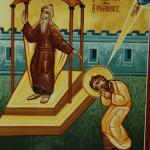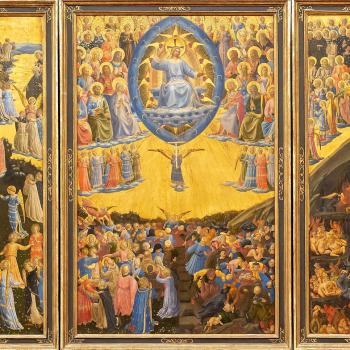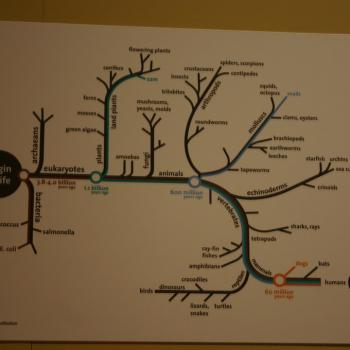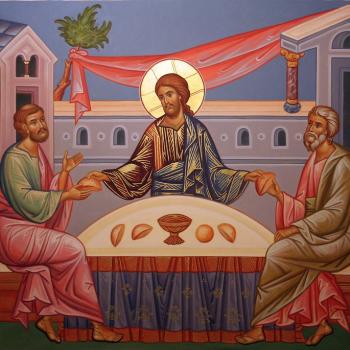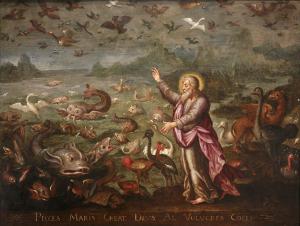
Often, I see people online asking what happens to their beloved pets when they die. They care about the fate of their pets thanks to the bond they have with them. This helps them know that something would be wrong for their pets to just vanish out of existence. They intuitively understand the problem inherent in annihilationism of any sort, even if it is a limited kind of annihilationism which relates to non-human forms of life. Why would God create and bring them into existence, to establish some good, only to snuff it out for eternity? It does not make sense.
Many pet owners first wonder what happens to their pets when their pets are dying, or have just died. They ask while in a time of grief. It is for this reason terrible to see the way many come out of the woodwork to answer them, saying not only are their pets dead, but their existence has been entirely wiped. To me, it seems that many who answer this way do so out of some sadistic desire to cause further grief; they seem to like to rub it in that someone’s beloved companion has been annihilated. Others, to be sure, seem to want to answer the question, using what they have learned from their theological studies, as can be seen in the way some (neo)-Thomists state that pets do not have immortal souls because they were not rational animals; of these, some try to be charitable about it, understanding the grief of those they are responding to, while others are completely indifferent to that grief, preferring to be dogmatic instead of pastoral. My own answer is quite different. Not only do I understand the grief, and try to give the bereaved comfort, I point out, despite the way some try to answer the question, the Christian tradition offers only speculative answers to the question. That is, despite the way some try to be dogmatic and act as if their theological opinion is what must be believed, there is no definitive, dogmatic teaching on the matter. Some, like myself, believe there are reasons why we can hope (and even believe) that pets, as well as other animals, will have a place in the eschatological kingdom of God. My own view is that as all animals have souls (which tradition states), and the nature of the soul is to give life, the nature of the soul is to be immortal, whether or not it is rational (which, to be sure, comes from the way many, like Plato, explained the immortality of the soul). I also say, despite what Thomas and others have thought, there is good reason to believe animals have various levels of rational cognition, suggesting that it is a bad assumption (filled with bias) which suggests otherwise. Finally, I point out, even if I were wrong on those accounts, we can, like C.S. Lewis, still trust in God, the God who will resurrect us at the end of time, to likewise restore life to all who have died, whether or not they have had immortal souls, meaning, we do not even have to know if they have immortal souls in order to hope that we will once again experience the joy of our pets and their existence in the eschaton.
Thus, every time I see the question asked, I want to say, we can hope and believe that all dogs (and cats, hamsters, fish, births, and all other forms of life, including non-animal life) have a place set for them in the eschatological kingdom of God. One of the major sources of my theological justification lies in the way Eastern theology (and also many in the Western tradition) talk about the cosmic (universal) significance of Christ’s incarnation, birth, life, dead, resurrection and ascension into heaven. What he has done is share God’s grace and love not only to humanity, but to all creation – something which Paul himself suggests a few times in Scripture. God is love, and in that love, not only created the world we live in, but also gave to it the ability to produce life, and all life, has, in their own way (not just animals) some level of autonomy (it is, to be sure, a scale, with some having far greater levels of autonomy than others). That autonomy, that freedom, gives every living thing, based upon its potentiality, to open or close themselves to God and receive some kind of grace (deifying grace) in return. Those who would deny this because of the vast difference between God and animals, or God and plants, or God and fungi, ignore that such an argument would undermine God’s relationship with us, for God is infinitely greater and different from all created being.
I often wonder why the Christian tradition, especially in the West, became agnostic, if not outright hostile, to the notion that animals have a place in the eschaton. Is it because animals are seen as being more materialistic than spiritual, and as such, some weird Gnostic influence lies behind this? Perhaps, especially if we consider the role Augustine has had on this issue; in his confrontation with Manichaeans and other Gnostics, he continues to follow their way of thinking, which easily has led him to sometimes go astray in his answers to them (similar to the way many contemporary Catholic apologists, who were once Protestant, often show their way of thinking remains Protestant instead of Catholic). To be sure, St. Augustine was a great thinker, and a great man, which is why his many foibles and mistakes, could and did lead to great troubles in the Christian tradition (as, for example, the way his writings helped suggest people the notion of double-predestination). Thus, as he was unable to completely distance himself from what he learned from the Manichaeans, I think this is what led him to hold a rather negative understanding of animals and their place in the Christian tradition. Manicheans had a relatively low view of animals, as they were seen as beings with little real spiritual nature to them; they were seen mostly as material beings, and, as matter to them was something which needed to be rejected and overcome, animals, being primarily material, were deemed relatively unimportant: whatever good was in them, whatever light was in them, they believed would be freed at their death, no longer having any connection to their historical existence. Augustine, then, took their negative view of animals without considering if it contradicted other beliefs he came to hold as a Catholic. He certainly ignored the greater philosophical (and religious) traditions which gave a greater understanding and appreciation of animals, if he did not outright ridicule them. Since Augustine became one of the greatest shapers of the Western theological tradition, that defect could and would continue after him.
While the arguments which can be made for and against the immortality of animals are many, and as such, would be interesting to explore, and it is something which I have done, here the only point I am trying to make is that there have been and continue to be many different answers given to those who ask about what happens when pets die. Christianity does not have a definitive answer to give, though, for many, like myself, revelation, such as found in Scripture, is highly suggestive that God is as concerned with animals as with us, and that they will have a place in the kingdom of God. Indeed, the more I consider what I have learned about God, the more I understand God’s role not only in the creation, but the preservation of the universe and all that exists. This mean, all life, indeed, all that has been brought into being, will be restored in the eschaton and have a place in the kingdom of God. I believe this the outcome of many of the things which God has revealed to us in and through the definitive revelation given to us by the God-man, Jesus Christ. We are told that death has no sting, that life is greater than death, and that in and through Christ, those who have died will be brought back to life. The theological discussions which explore the way Christ brings back the dead to life through his resurrection from the dead would prove faulty if the arguments given only hold true for humanity. Death would be victorious, its sting, real, if most forms of life were annihilated. This is not what I have come to see and believe about God. God is a God of the living, the God of all creatures; when the Psalms and Saints alike have animals praise God, do we not see that God has a relationship with them, that God is their God just as much as ours? How, having formed a relationship with them, can God just allow them to perish and cease to exist for all eternity? How would God remain a God of the living, when the vast amount of creatures which have been called to praise God, find themselves forever among the dead?
* This Is Part XLI Of My Personal Reflections And Speculations Series
Stay in touch! Like A Little Bit of Nothing on Facebook.
If you liked what you read, please consider sharing it with your friends and family!
N.B.: While I read comments to moderate them, I rarely respond to them. If I don’t respond to your comment directly, don’t assume I am unthankful for it. I appreciate it. But I want readers to feel free to ask questions, and hopefully, dialogue with each other. I have shared what I wanted to say, though some responses will get a brief reply by me, or, if I find it interesting and something I can engage fully, as the foundation for another post. I have had many posts inspired or improved upon thanks to my readers.



